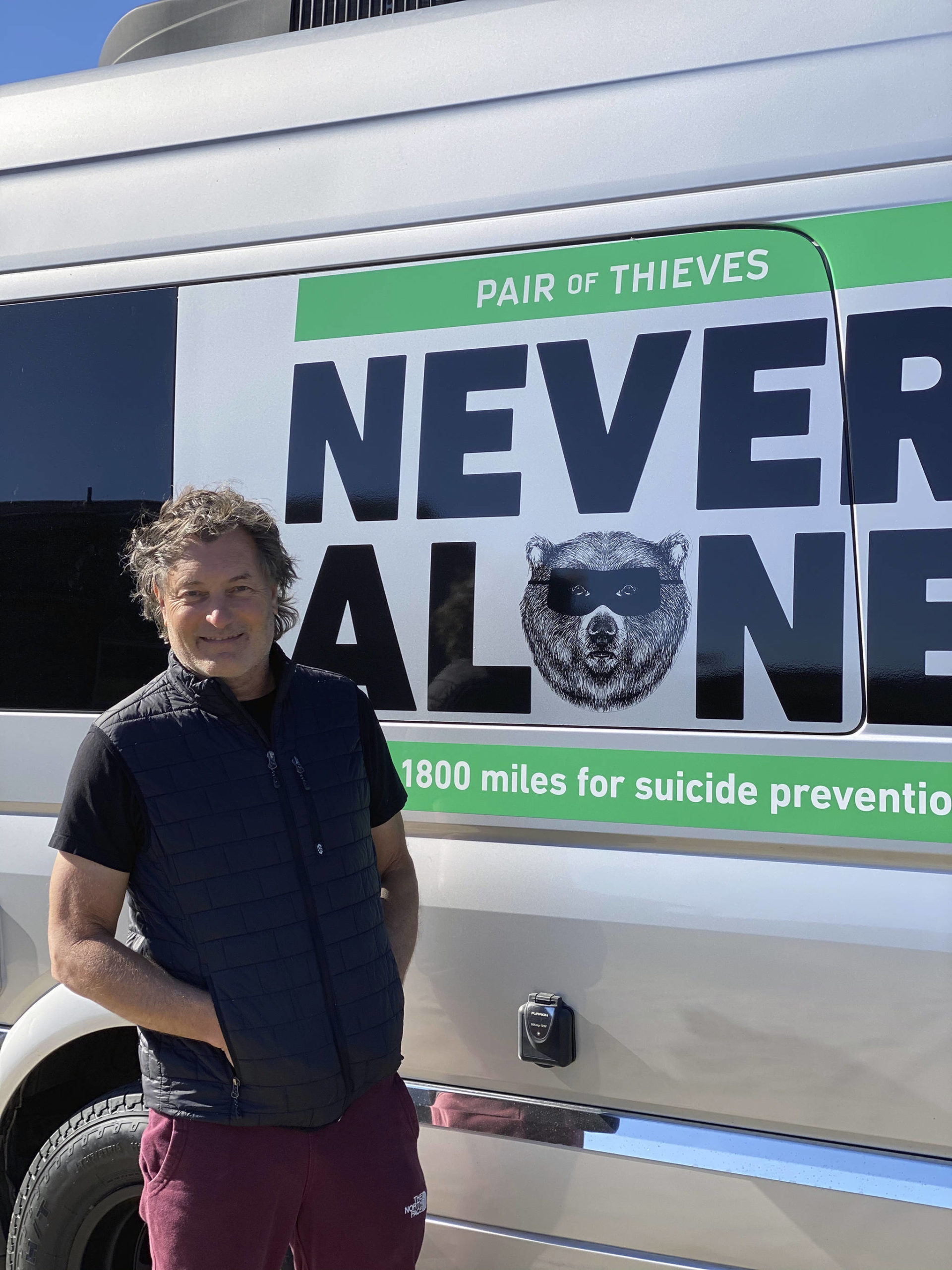By DAVE SKRETTA
AP Sports Writer
Doug Petersen remembers coming home from work and walking around to the backyard, drawn by the joyful sound of teenage laughter, and finding that his son’s friends had set up the family trampoline by the swimming pool.
With a combination of grin and grimace, he would watch the boys do flips and tricks into the cold, blue water.
“I’d be like: ‘Guys, you can’t be doing that. Someone is going to get hurt.’ And three days later, I’d come home and there was the trampoline again,” Petersen recalled. “We raised our kids to be free thinkers. They could choose what they wanted in terms of religion or politics. And that’s why I would beat myself up over the fact that maybe we did too good of a job.”
Petersen’s light laugh suddenly went silent.
[Former basketball pro embarks on 1,500-mile ride for mental health]
“Page was a free thinker,” he finally continued, “and he must have thought, ‘I don’t want to be here.’”
It was in January 2015 that 17-year-old Page Petersen, the carefree boy who pitched on the baseball field and tore down the slopes on his snowboard, died by suicide. He was among more than 2,000 teenagers that would die by suicide in that year alone, a number that is both staggering and heartbreaking.
Most heartbroken may have been Doug Petersen, who was so racked by survivor’s guilt that it took him a year to find the willpower to get moving. But once he did, the auctioneer from Oregon refused to stop, ultimately turning a rediscovered passion for cycling into a charity ride to raise money and awareness for National Suicide Prevention Month.
Throughout September, he will be riding from the Canadian border to the Mexican border, a distance of 1,472 miles. His wife, Lori, will follow in a camper van and he’ll be joined along the way by cycling clubs, high school groups and everyday people as he illustrates that “we are never alone on this journey in life.”
“I read a book about recovery,” Petersen said, “and it talked about exercise, so I dusted off the bike, went out and rode one day. Thought, ‘This was good.’ Then I went out the next day, and I started doing some longer distances.”
It was during a talk with Alan Stuart, a longtime friend and one of the founders of apparel company Pair of Thieves, that Petersen expressed the desire to do more than just ride. Pair of Thieves has long been active in philanthropy, using a one-for-one model in which the company provides socks to homeless shelters for each pair bought by a consumer, and Stuart saw in Petersen’s quest an opportunity to make a difference in the lives of people struggling with mental health.
[Fighting the stigma: Inside Passages closes with frank suicide discussion]
So the company turned to its familiar socks, creating a special edition pair that includes the phone number for a suicide prevention hotline on the sole. The brand will donate $2 for each pair to the American Foundation for Suicide Prevention.
“Doug and I were chatting about Page, and both of us are kind of fixers by nature. We hear something that bothers us or isn’t right and we have to do something,” Stuart explained. “I know their family well. I know how amazing of parents they are, and this one hit me hard. I know they would have done anything for their kids.”
That includes Hayley, an emergency room nurse in New York, and Christian, a real estate agent in Oregon.
“The fact that kind of hopelessness could happen to anybody,” Stuart said, “and that there are people hurting out there and don’t have the wherewithal or the initiative to take the first step — which is why they feel alone— how do they not feel alone? Or how do their friends make them not feel alone? A lot of times if somebody could reach out at the right moment, that taboo is broken. Somebody reaches out at the right moment could be the difference in surviving or not.”
That is why Petersen is riding. He wants people everywhere to know they are not alone.
He started the trek a couple of weeks ago, knocking off the states of Washington and Oregon before embarking on the final stage down the California coast. He’s found himself striking up conversations with locals in campgrounds where he stops each night, the organic talks naturally drifting to what he’s doing and why.
Petersen talks about how much Page, a talented left-hander, loved to take the mound. How he would ride at breakneck speed down the slopes on his snowboard. How he would laugh, and make sure others laughed, no matter the situation.
He talks about how things seemed to change those last few days.
[First-timers, survivors and moms get tattoos for suicide prevention]
“I could see it in Page’s eyes. He was struggling,” Petersen said, “and I could not get anything out of him. ‘Are you OK? Are you sure?’ ‘I’m OK. I’m OK.’ And we knew he wasn’t but we couldn’t reach him.”
Perhaps in some small way, Petersen’s ride to Mexico will reach somebody else.
“It’s not about me. It’s not about what I’m doing,” he said. “I just kind of want to raise some awareness, and in a backhanded way it’s helping me. I’m doing something and it feels good, so I’m going to keep doing it.”
• The National Suicide Prevention Lifeline number is 1-800-273-8255, and it is available 24 hours every day. The toll-free Alaska Careline number is 1-877-266-4357 or 452-4357 in Fairbanks. Alaska’s statewide hotline is staffed by Alaskans for Alaskans from 6-11 p.m., weekdays, and overnights on Friday and Saturday. During other hours, calls are automatically referred to the National Suicide Prevention Lifeline.

